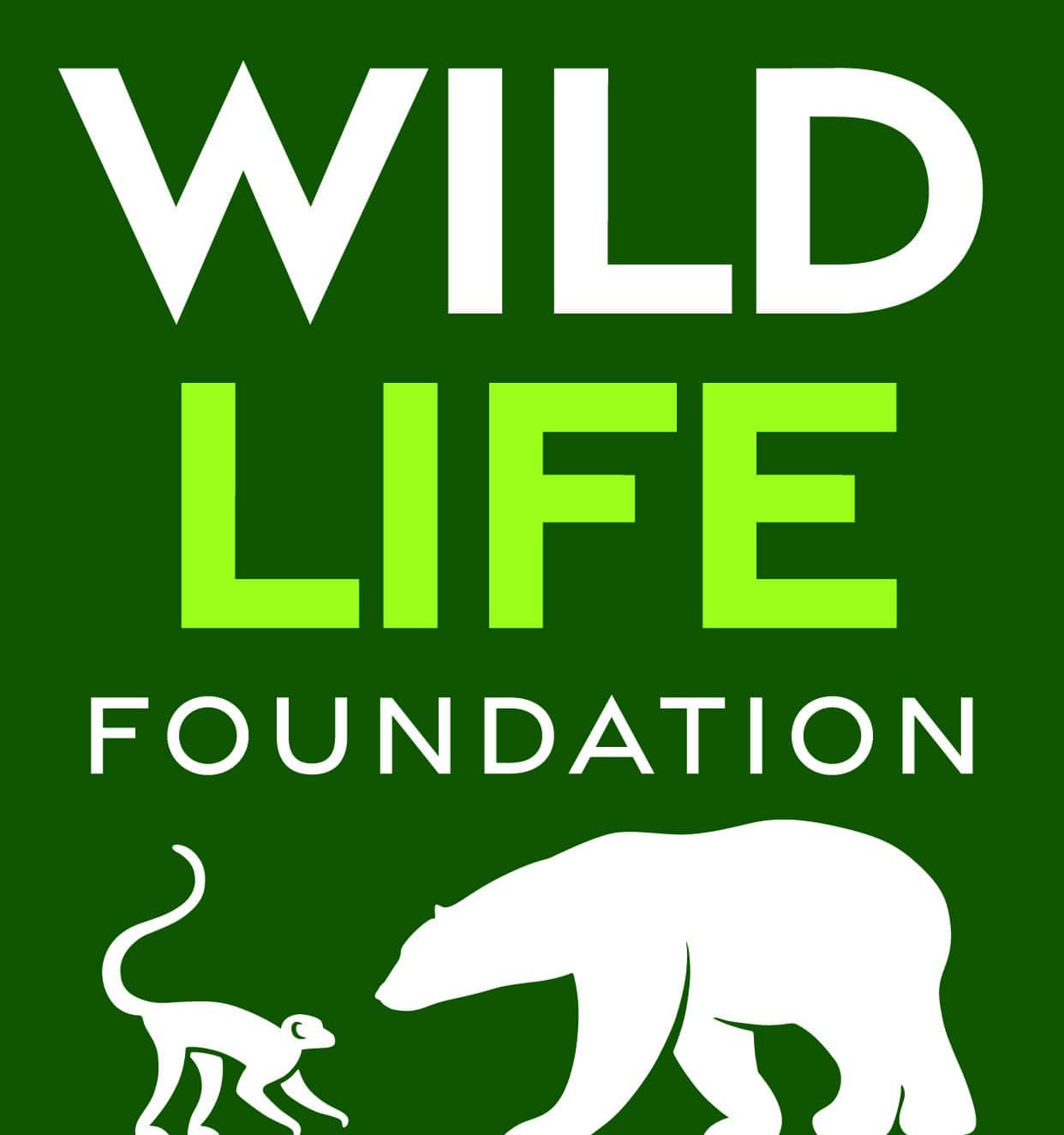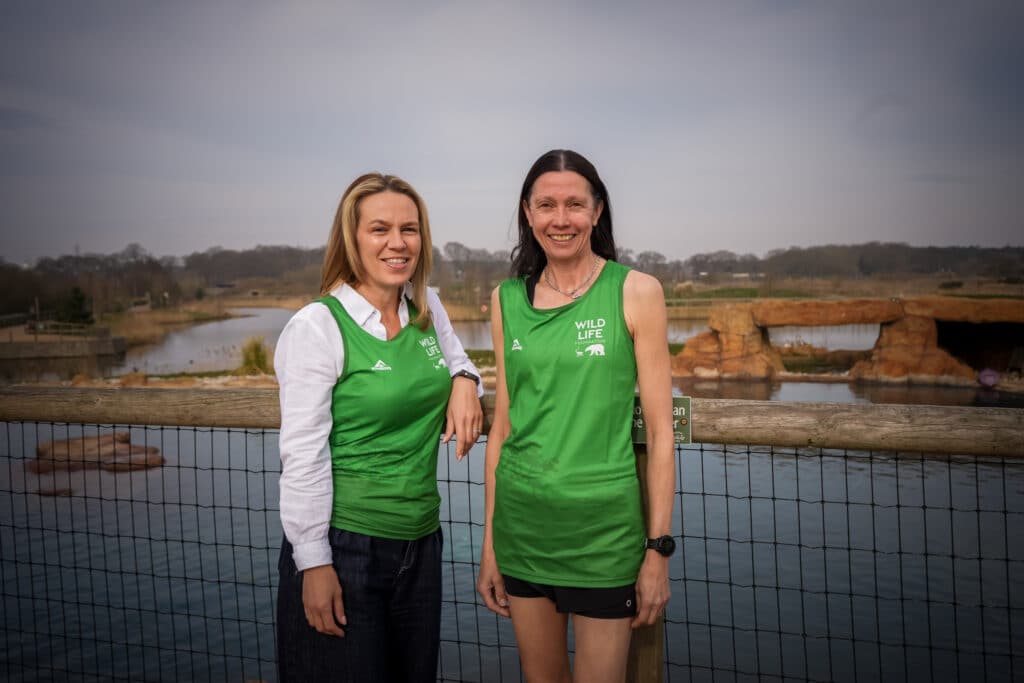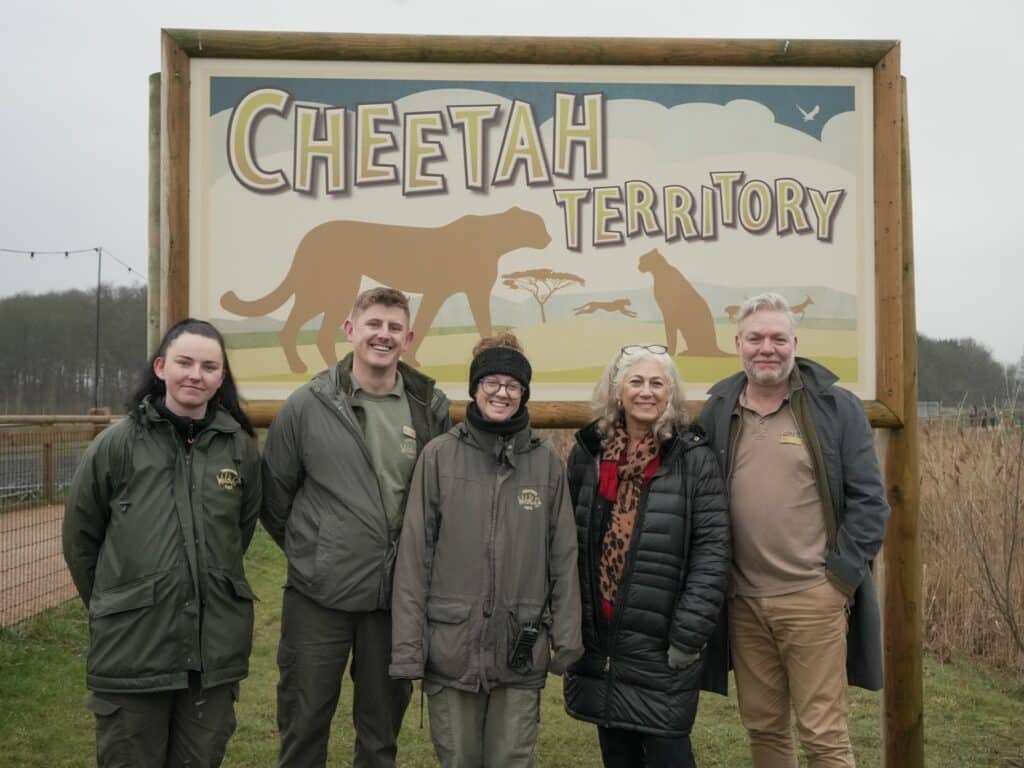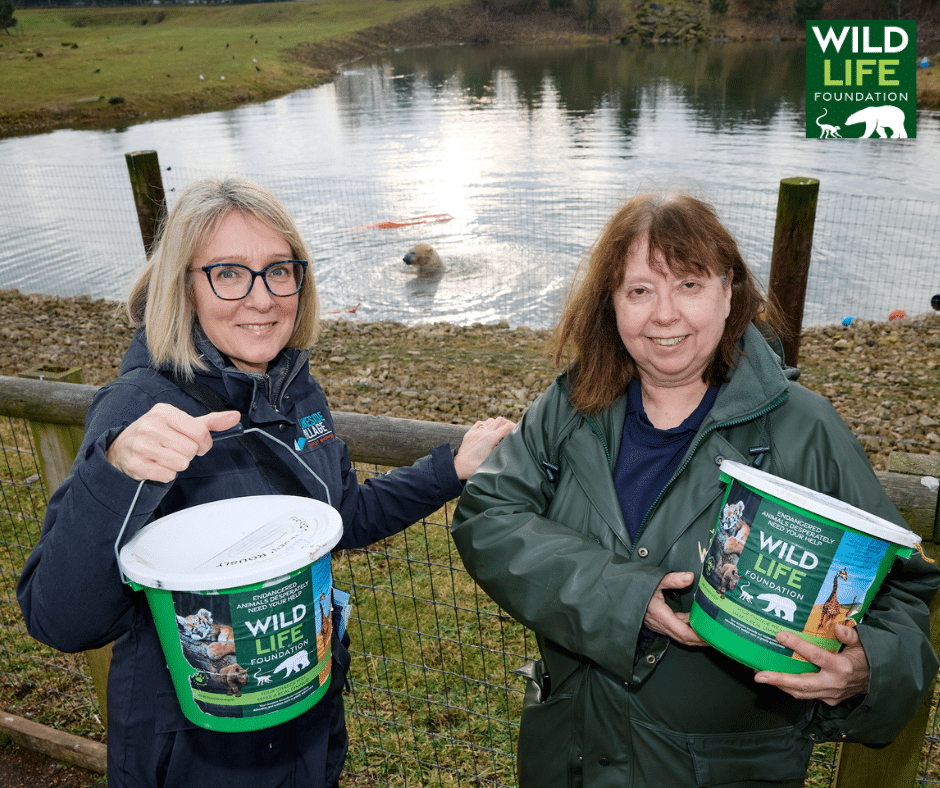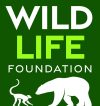Roloway Monkeys
One of the 25 most endangered primates
Number left in the wild
200
Population decline over the past 30 years
80%
Number left in captivity
33
Roloway monkeys definitely stick out from the crowd: they are quite large, have a triangular face, black and white coat, a pointy beard and yellow thighs and bum. They’re an arboreal species, which means they live in trees, and they like undisturbed forests best. Unfortunately, their characteristics and preferred habitat is putting them at risk. As they are large and have a soft coat, Roloway monkeys are hunted for their meat and fur. Because they like very specific forests, they are struggling as their habitat is destroyed for logging and agriculture.
Long story short, they needed our help. Our former partners, WAPCA (West African Primate Conservation Action) and primate experts at Yorkshire Wildlife Park, were involved. At the Cape Point reserve, the project covered monitoring and research of these little-known primates, protecting them from poaching in the forest, educating local communities about forest conservation and sustainable agriculture, and emphasising the importance of keeping these amazing animals alive. There was also welfare work at Accra Zoo, helping to improve facilities where primates were brought for rehabilitation and treatment.
Long story short, they needed our help. Our former partners, WAPCA (West African Primate Conservation Action) and primate experts at Yorkshire Wildlife Park, were involved. At the Cape Point reserve, the project covered monitoring and research of these little-known primates, protecting them from poaching in the forest, educating local communities about forest conservation and sustainable agriculture, and emphasising the importance of keeping these amazing animals alive. There was also welfare work at Accra Zoo, helping to improve facilities where primates were brought for rehabilitation and treatment.
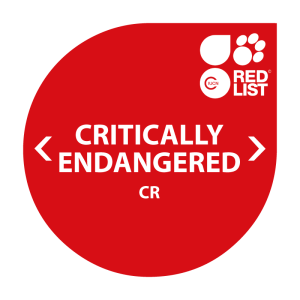
Threats
Habitat destruction:
Roloway monkeys live in Ghana and Ivory Coast, which have lost a lot of their forests over the past decades. They are being destroyed for their hardwood trees, which are popular and expensive, and for agriculture, to grow things like cocoa and palm oil. Unfortunately, Roloway monkeys just can’t adapt to any other habitats, so the loss of their favourite forests is really affecting them.Hunting:
Bushmeat is a major source of food for communities near where Roloway monkeys live. Because they are big, people target them for hunting. They are also hunted for their super-soft coats, which are worth a lot.Working with
Roloway Monkeys
Our work with WAPCA
The WildLife Foundation recently provided a grant to WAPCA (West African Primate Conservation Action) for a project in the Kwabwe forest in Ghana. They undertook field surveys that were invaluable for conservation efforts of Roloway monkeys and other primates. They also worked hard to clamp down on poaching. Rangers from Yorkshire Wildlife Park were set to take part in the project, heading to Ghana to work alongside conservation experts.Facts
In Ghana, the Roloway monkey is called “Efiai aighéhi” which means “the monkey with a white beard”.
The Roloway monkeys’ habitat is threatened by farming of products like cocoa and palm oil. We can help them by choosing products with sustainably grown ingredients.
The Roloway monkeys’ habitat is threatened by farming of products like cocoa and palm oil. We can help them by choosing products with sustainably grown ingredients.
Seven Worlds, One Planet
We worked in the Kwabwe forest in Ghana with WAPCA (West African Primate Conservation Action)
